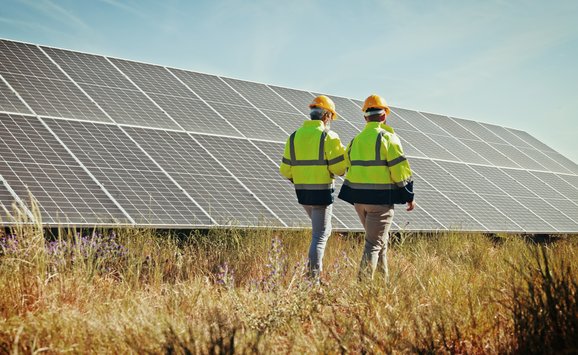The proliferation of nuclear weapons has been a key world problem during the nuclear age, but the perception of its importance has fluctuated widely. During the early 1960s, it was predicted that many nations would acquire nuclear weapons within that decade; however, by 1970 there were only two known additions—although admittedly important ones—France and China, and the issue attracted less attention. In recent years concern has grown greatly following the explosion by India in 1974 of a "peaceful use" nuclear device. It has also been reported in recent news accounts that Israel has developed a nuclear weapons capability based on bomb material made in a research reactor. Finally, concern over adequacy of uranium has moved recycling into center ring.

Power and proliferation. All existing nuclear weapons have been developed either as part of an avowed weapons program or by the extraction of the bomb material plutonium—transmuted during the burning of uranium fuel—in reactors designed for "research." However, the possibility now exists that nations will accumulate bomb-grade material as by-products of a civilian nuclear power industry. Brazil, for example, contracted a year ago with West Germany to buy nuclear reactor system elements, including enrichment plants that could conceivably enrich ordinary uranium in the fissile isotope U-235, to the point where the product could be used for weapons. Pakistan has similarly contracted with France to buy a reprocessing plant capable of extracting transmuted plutonium from the spent uranium fuel of nuclear reactors.
Furthermore, nuclear fuel enrichment, which has traditionally involved a complex multi-million-dollar facility, may soon be achievable with much smaller and cheaper systems. Specifically, the current reported development of a new, less complex enrichment system in South Africa has dramatized this possibility. Another aspect of the problem is that crude but dangerous "basement bombs" could be manufactured by criminals, fanatics, or political terrorist groups from stolen enriched uranium or plutonium.
The modes of proliferation of concern here are those associated with the worldwide spread of nuclear power. One such possibility is the purchase by a country of weapons-grade fuel ostensibly for peaceful purposes. Up to now this possibility has existed mostly with fuel for research reactors that use highly enriched uranium. But such material will be more widely available if the use of plutonium or highly enriched uranium fuels for production of power becomes more widespread. The Nuclear Regulatory Commission is currently trying to decide whether to allow plutonium recycling in the United States, while several European countries are now creating or upgrading new processing facilities to supply plutonium for this purpose. The growth of such an international plutonium recycling economy would presumably expose much more plutonium to possible diversion for weapons purposes. And such possibilities would be increased ever more by a worldwide utilization of breeder reactors that routinely use large amounts of plutonium as a component of the fuel.
The widespread use of plutonium could also encourage the acquisition of fuel production facilities by more nations, as illustrated by the Pakistani and Brazilian cases. Such facilities would, of course, be justified on economic grounds for electricity generation; yet the proposed Pakistani plant, for example, has a capacity far exceeding any projected use for Pakistani power reactors and might be difficult to explain purely on the basis of need for civilian nuclear power.

Safeguards. It is argued by some, of course, that the use of nuclear power to allay the world energy crisis should not be hampered by fears of proliferation, since any determined country could develop a nuclear arms capacity without any connection with civilian power generation. Nevertheless, because of concern that the easy availability of nuclear fuel and facilities might increase the likelihood and the speed of proliferation, special measures have been sought to control trade nuclear facilities and materials within the past two years.
Efforts have been made, for example, to strengthen the existing safeguards applied by the International Atomic Energy Agency (IAEA) and to pressure additional states into joining the Nonproliferation Treaty of 1970, but with only limited success. Furthermore, IAEA safeguards also apply only as an auditing system for nuclear materials and cannot be expected to detect all diversions or to detect diversions promptly (within six months). Therefore, a so-called Secret Seven conference of nuclear supplier nations has also been meeting at intervals within the past few years to try to come to an agreement on supplemental controls on nuclear exports.
In addition to such international efforts, France and West Germany have recently decided unilaterally to either impose a moratorium on, or to discourage exports of, nuclear production facilities; policies such as these would prevent the repetition of arrangements like the recent Brazilian and Pakistani contracts.

U.S. policy. Present U.S. policy is in a state of flux. The United States has traditionally discouraged the export of nuclear production facilities but has not required that IAEA safeguards be applied to all aspects of the nuclear fuel cycle in countries receiving U.S. exports. It has also opposed the use of existing U.S. dominance of the Free World enrichment market to threaten or compensate other supplier nations.
The recent election campaign, however, raised the possibility of some changes. Specifically, Jimmy Carter stated that, if elected, he would call on all nations to adopt a moratorium on international trade in enrichment or reprocessing plants and that he would insist on maximum controls on all future U.S. exports of fuel or reactors. He also advocated a moratorium on domestic reprocessing of fuel for plutonium recycle. During the latter stages of that campaign, President Ford adopted a similar position. Such a U.S. policy, if implemented, would be a great departure from the past.
The question remains whether any U.S. policy will have much effect on the rest of the world. Specifically, will U.S. policy on reprocessing or the breeder affect adoption of these technologies in the rest of the world? Alternately, would a U.S. de-emphasis or phaseout of nuclear power production affect the world nuclear economy and therefore possibly proliferation? Answers to such questions must inevitably be speculative. Still, the questions of world peace and the threat of nuclear warfare need to be taken into account in developing the rationale for U.S. decisions on energy policy. Research being conducted at Resources for the Future, for example, on alternative energy sources includes an investigation of the fatalities associated with possible increases in proliferation linked to the growth of U.S. nuclear power—as part of a comparison of all types of health impact associated with other types of power generation. Thus does the complexity of modern technology and international interdependence extend the range of considerations for decision makers.





